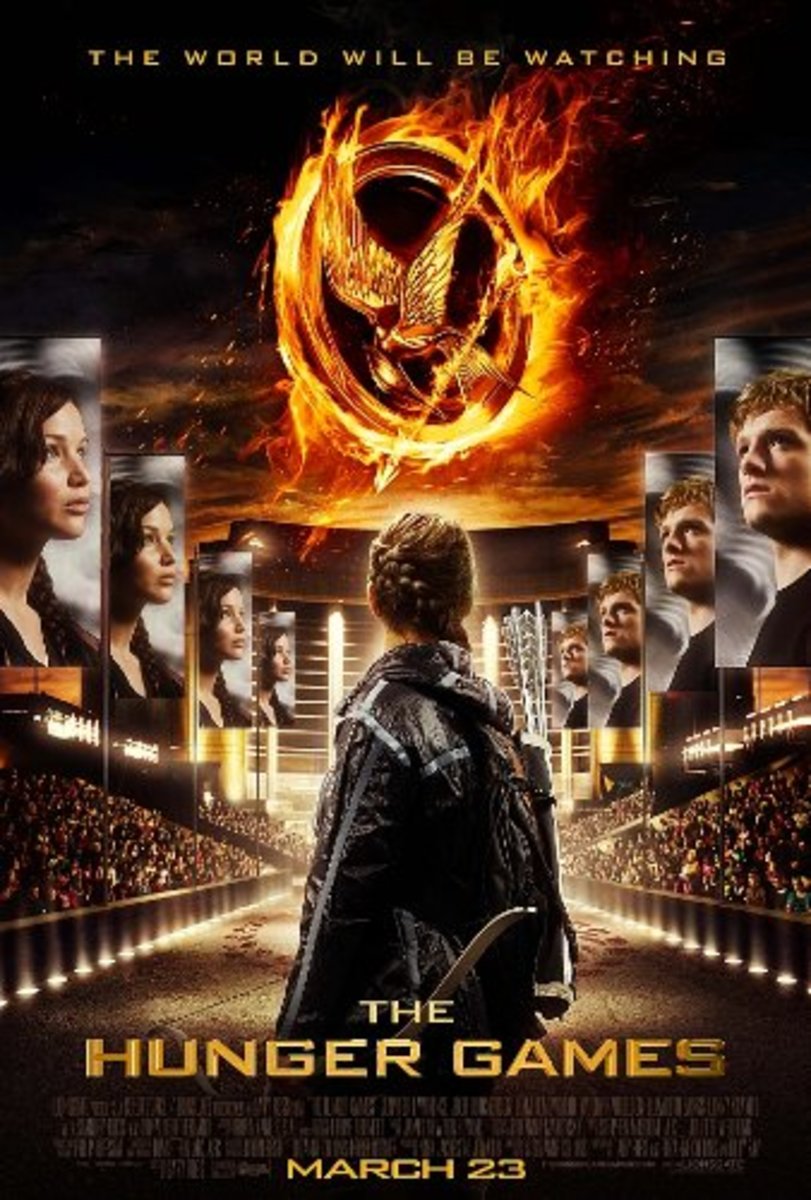- HubPages»
- Books, Literature, and Writing»
- Books & Novels»
- Books for Teens & Young Adults
The Hunger Games, pt.1: Could This Ever Happen?

How close are we to the Hunger Games?
I do not consider myself to be anything close to an expert on youth literature, but I know enough about pop culture to realize that young people are attracted to some pretty dark stuff. But in spite of this realization, I was a bit surprised when I first heard the premise of "The Hunger Games." The idea of 24 kids being thrown into an arena to slaughter one another seems a bit too grisly for even America's violence-loving youth. Having now read the first book of the series, however, I have a better understanding of its appeal. Suzanne Collins definitely has a knack for suspense, and it is hard not to sympathize with Katniss, the story's narrator who volunteers for this ordeal in order to save her younger sister. And even as Katniss is going through this nightmare, Collins manages to slip in some teenage romance complete with confused, adolescent emotions.
Plus, like the "Harry Potter" series, which has its fair share of violence, you could make the argument that "The Hunger Games" is not very realistic. Because no society could ever be this barbaric, the book does not blur the lines too much between fantasy and reality, and young people will neither be traumatized by the story nor have a burning desire to go out and slaughter some fellow young people. The difference, however, is that most people (I hope) do not believe that wizards actually exist with the capacity to hurl nasty spells at one another. But since "The Hunger Games" has no hint of the supernatural, you could make the case that this dark future could conceivably happen. So could a government and society ever become barbaric enough to find such a horrific display of violence entertaining?
There is no doubt that modern American society finds violence to be very entertaining. Much of this, of course, is fictional: movies, TV shows, video games, etc. Some of this violent entertainment, however, consists of real-life documentaries or attempts to depict actual events, such as war movies, cop shows, or classic American Westerns.
But our violent entertainment can get even more real than this. Boxing remains relatively popular, in spite of the fact that many fighters experience brain damage or occasionally die in the ring. And in recent years, the UFC and other "ultimate" fighter organizations have sprung up, consisting of two men in a cage who can beat the crap out of each other without many of the restrictions imposed in the boxing ring. And even America's most popular spectator sport, football, is not exactly a day in the park. It's hard to believe that when football first started, it was a low-class, lowlife sport in which people often died. Many rules for modern football, in fact, were originally developed to keep people from killing one another. So with all of its continuing dangers (and occasional deaths), football has become somewhat more safe and respectable. But when it comes to sports that throw people into a ring to beat on one another, things have actually become more violent. Apparently, for the people who like to watch guys beat each other up, it takes a bit more to keep their attention. Someday, will they give those fighters some weapons in order to make things even more exciting, with the UFC stirring up memories of ancient battles between Roman gladiators?
In the early 2000's, the show "Fear Factor" became a major phenomenon for a time. As the title indicates, it consisted of putting everyday people into situations that would either scare the hell out of them or gross them out. So they would basically be forced to eat maggots, drive a car off of a tall building, or do other terrifying things. Inevitably, however, the ratings began to drop. Since the whole appeal of this type of sensationalistic TV is its ability to shock people, it was necessary to keep pushing the envelope a bit further in order to keep the audience interested. But after a while, you will run out of ever scarier or more disgusting scenarios. You can't, after all, put the contestants into any real danger. Or then again, maybe you could. For if "Fear Factor" had eventually evolved into "Death Factor," with contestants occasionally dying due to the degree of danger that they faced, the show might still be thriving today. And come to think of it, just think how cool "Survivor" would be if it were an actual struggle to the death instead of a glorified game show. Of course, I would like to think that regulations would kick in before any show could reach this point. (And this would be just one more case of some damn regulations holding back potential economic growth.)
Hopefully, most Americans' apparent bloodlust will stay satisfied through fictional entertainment or sporting events, and these types of "healthy outlets" will prevent something like "The Hunger Games" from ever coming into being. There are, however, many places throughout the world today that have governments far worse than "The Capitol" in "The Hunger Games." And many people who might find "The Hunger Games" offensive are less bothered by circumstances in the real world that cause innocent people to suffer even more than Katniss and the other 23 "tributes." But I will save this discussion for my next post. (To be continued)
Check out my new book:
I recently published a new American History book. Click the link below for a hub that provides more details:









